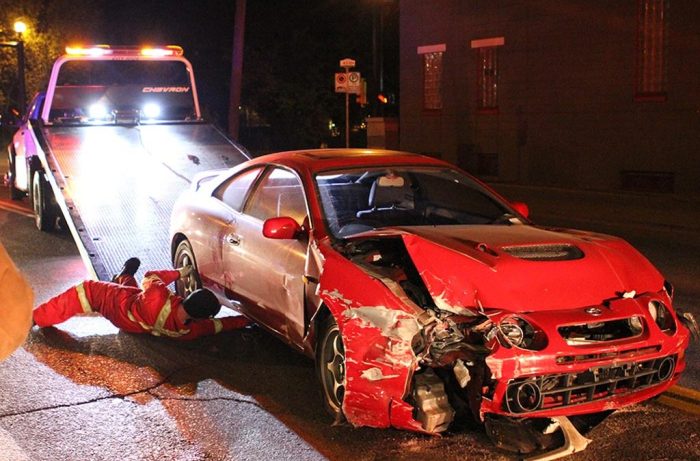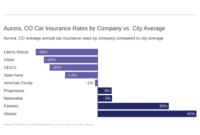Who is liable in a rental car accident? Determining fault can be tricky, but understanding the basics can help you protect yourself financially. Here’s a breakdown of who’s responsible and how insurance coverage plays a role.
In most cases, the person driving the rental car is liable for any damages or injuries caused by the accident. This is true even if the driver is not the renter. However, there are some exceptions to this rule. For example, if the accident was caused by a mechanical defect in the rental car, the rental company may be liable.
Liability in Rental Car Accidents
When you rent a car, you are generally liable for any damages or injuries that occur while you are driving it. This is because you are considered the driver of the vehicle, and you are responsible for its safe operation.
However, there are some exceptions to this general rule. For example, you may not be liable if the accident was caused by a defect in the rental car, or if you were driving under the influence of alcohol or drugs.
In a rental car accident, liability can be complex. The driver is typically responsible, but other parties may also be held accountable, such as the rental company or the owner of the other vehicle involved. To better understand liability in rental car accidents, it’s worth exploring Cost Comparison AWS Big Data Tools for insights into data analysis and cost optimization.
By leveraging big data tools, insurers and legal professionals can analyze accident patterns and identify potential areas of liability.
Who is Liable?
In most cases, the driver of the rental car will be liable for any damages or injuries that occur. However, there are some exceptions to this rule. For example, the rental car company may be liable if the accident was caused by a defect in the car, or if the rental car company failed to properly maintain the car.
In the event of a rental car accident, determining liability is crucial. Typically, the renter is held responsible, but exceptions exist, such as when the accident was caused by a third party or a mechanical failure. As the automotive landscape evolves, it’s important to stay informed about emerging trends, such as the projected Electric car insurance costs in 2025.
Understanding these changes can help drivers make informed decisions regarding their rental car insurance coverage and protect themselves from financial liability in the event of an accident.
If you are involved in an accident while driving a rental car, it is important to contact the rental car company and your insurance company as soon as possible. The rental car company will need to inspect the car and determine who is liable for the damages. Your insurance company will need to provide you with coverage for any damages or injuries that you are responsible for.
In a rental car accident, determining liability can be complex. If you’re at fault, you may be responsible for damages to the vehicle and injuries to others. Seeking legal advice from lawyers with flexible payment plans can help you navigate the legal process and protect your interests.
They can assist in determining liability and pursuing compensation for any damages you may have incurred.
What to Do After an Accident, Who is liable in a rental car accident
If you are involved in an accident while driving a rental car, it is important to take the following steps:
Pull over to the side of the road and turn on your hazard lights.
Call the police and report the accident.
Exchange information with the other driver(s) involved in the accident.
Take pictures of the damage to both vehicles.
Contact the rental car company and your insurance company.
Who is Liable?

In the event of a rental car accident, several parties may be held liable for damages. The primary factors determining liability include the terms of the rental agreement, the actions of the driver, and any applicable laws or regulations.
Determining liability in a rental car accident can be complex, as multiple parties may be involved. In such cases, seeking legal counsel from lawyers with excellent communication skills is crucial to navigate the legal complexities and protect your rights. They can effectively communicate with insurance companies, opposing counsel, and other parties involved, ensuring that your case is presented clearly and persuasively.
The Rental Company
The rental company may be held liable if the accident was caused by a defect in the rental vehicle. For example, if the brakes failed or the tires were defective, the rental company could be held responsible for the resulting damages.
When it comes to rental car accidents, determining liability can be complex. The driver of the rental car is typically held responsible, but there may be exceptions. If the accident was caused by a defect in the car itself, the rental company could be liable.
Additionally, if the rental company failed to properly maintain the car, they may also be held responsible. For more information on rental car accidents and liability, visit our comprehensive guide on cars.
The Driver
The driver of the rental car is typically liable for any damages caused by their negligence or recklessness. This includes accidents caused by speeding, driving under the influence of alcohol or drugs, or failing to yield the right of way.
Third Parties
In some cases, a third party may be held liable for a rental car accident. For example, if another driver caused the accident, they could be held responsible for the damages. Additionally, if the accident was caused by a defective road or traffic signal, the government agency responsible for maintaining the road or signal could be held liable.
In the event of a rental car accident, determining liability can be complex. However, understanding the nuances of rental car agreements and insurance policies is crucial. To further explore the financial implications of transportation, it’s worth considering the cost of electric cars in 2025 compared to gasoline vehicles.
As the automotive industry evolves, staying informed about emerging technologies and their potential impact on our finances is essential. Returning to the topic of rental car accidents, it’s important to note that liability can extend beyond the driver and may involve the rental company, insurance providers, and even passengers.
Determining Fault
In determining fault in rental car accidents, courts consider several factors, including:
Negligence: The failure to exercise reasonable care, which can include actions such as speeding, reckless driving, or failing to yield.
Comparative negligence: A system that assigns fault to multiple parties based on their degree of negligence. For example, if the rental car driver is found to be 60% at fault and the other driver is found to be 40% at fault, the rental car driver would be responsible for 60% of the damages.
Contributory negligence: A system that bars a plaintiff from recovering damages if they are found to be partially at fault for the accident. This system is not used in all states.
Evidence used to establish fault in rental car accidents can include:
Police reports: These reports document the details of the accident, including the names of the drivers involved, the time and location of the accident, and any witness statements.
Witness statements: Eyewitness accounts can provide valuable information about the events leading up to the accident and the actions of the drivers involved.
Physical evidence: This can include damage to the vehicles involved, skid marks, and photographs of the accident scene.
Insurance Coverage
Insurance plays a crucial role in determining liability and providing financial protection in the event of a rental car accident. Several types of insurance coverage may be available to cover damages and expenses resulting from the accident.
Primary Insurance
The renter’s primary auto insurance policy often extends coverage to rental vehicles. However, it’s essential to check the policy details and coverage limits to ensure adequate protection.
Rental Car Company Insurance
Rental car companies typically offer various insurance options, including:
Collision Damage Waiver (CDW): Covers damage to the rental car in case of an accident, regardless of fault.
Liability Insurance: Provides coverage for injuries or property damage caused to others in an accident.
Personal Accident Insurance: Provides coverage for medical expenses and lost income for the renter and passengers in case of an accident.
Credit Card Coverage
Some credit cards offer rental car insurance as a benefit. It’s important to review the terms and conditions of the coverage to understand its limitations and exclusions.
Special Considerations: Who Is Liable In A Rental Car Accident

Rental car accidents can involve unique circumstances that require special attention.
Factors such as underage drivers or international travel can introduce additional complexities and legal considerations.
Underage Drivers
Most rental car companies have age restrictions for drivers, typically requiring renters to be at least 25 years old. However, some companies may rent to drivers as young as 18 with additional fees and restrictions.
In the event of an accident involving an underage driver, the rental company may deny coverage or hold the renter financially responsible for damages.
International Travel
When renting a car abroad, it is crucial to be aware of the local driving laws and insurance requirements.
In some countries, the rental company may provide basic insurance, while in others, additional coverage may be necessary.
It is advisable to purchase supplemental insurance to protect against potential liabilities in case of an accident.
Expert Answers
What should I do if I’m involved in a rental car accident?
Contact your insurance company and the rental car company as soon as possible.
Who is liable for damages in a rental car accident?
The person driving the rental car is usually liable, but there are exceptions.
What types of insurance coverage are available for rental car accidents?
Collision damage waiver (CDW) and liability insurance are common types of coverage.




